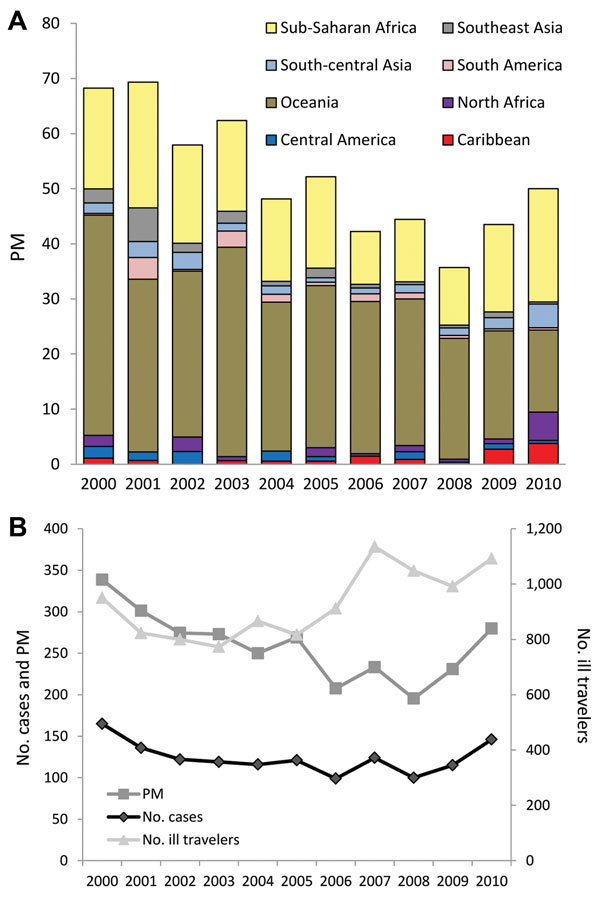Volume 19, Number 7—July 2013
Research
Travel-associated Illness Trends and Clusters, 2000–2010
Figure 3

Figure 3. . A) Proportionate morbidity (PM) for malaria (no. malaria cases/1,000 ill returned GeoSentinel patients) by region, 2000–2010. B) Absolute case numbers and proportionate morbidity for malaria (no. malaria cases/1,000 ill returned GeoSentinel patients) after travel to sub-Saharan Africa, 2000–2010. There were 1,363 total reported cases of malaria after travel to sub-Saharan Africa among the 18 GeoSentinel sites.
1Additional members of the GeoSentinel Surveillance Network who contributed data (in descending order of contribution): Kevin Kain and Andrea Boggild, Toronto, Ontario, Canada; Louis Loutan and François Chappuis, Geneva, Switzerland; DeVon C. Hale, Rahul Anand, and Stephanie S. Gelman, Salt Lake City, Utah, USA; Graham Brown, Melbourne, Victoria, Australia; Giampiero Carosi, Brescia, Italy; Bradley A. Connor, New York, New York, USA; N. Jean Haulman, David Roesel, and Elaine C. Jong, Seattle, Washington, USA; Phyllis E. Kozarsky, Jessica Fairley, and Carlos Franco-Paredes, Atlanta, Georgia, USA; Marc Shaw and Annemarie Hern, Auckland, New Zealand; Christina M. Coyle and Murray Wittner, Bronx, New York, USA; Lin H. Chen, Cambridge, Massachusetts, USA; Noreen Hynes, R. Bradley Sack, and Robin McKenzie, Baltimore, Maryland, USA; Carmelo Licitra and Antonio Crespo, Orlando, Florida, USA; and Thomas B. Nutman and Amy D. Klion, Bethesda, Maryland, USA.